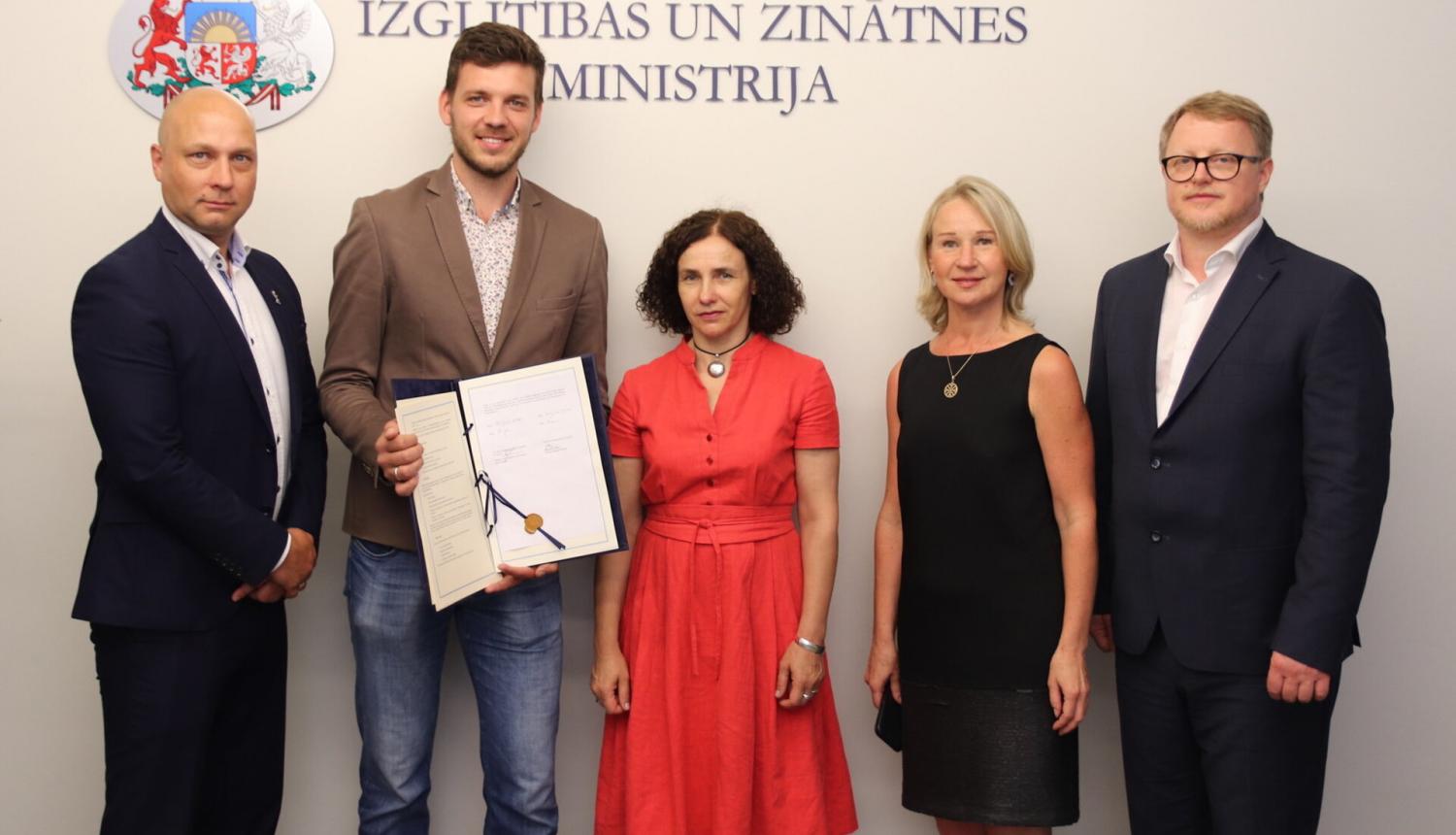Latvia signed an Association Agreement with ESA on 30 June 2020.
This Association Agreement between ESA and the Government of the Republic of Latvia, builds on the successful results achieved under the previous frameworks of cooperation and enters into force for a duration of seven years. Comprising 18 Articles and two Annexes, it orchestrates the strengthening of Latvia’s relations with ESA.
Following its approval by ESA Council, meeting at ESOC in Darmstadt on 2406.the Agreement was signed on behalf of ESA by Director General Jan Wörner. The Latvian Minister of Education and Science (IZM) Mrs Ilga Šuplinska subsequently signed it on 30 June in Riga, prior to its ratification by the national Parliament which was notified to ESA on 27 July.
Mrs Šuplinska stressed that becoming an Associate Member of ESA will open up new opportunities for Latvian scientists and entrepreneurs to cooperate with the European space industry, and advance research and development. The stepped increase in contribution foreseen is regarded as ‘an investment in the people of Latvia, as participation in European space missions and consortia will enable practitioners to develop high-tech skills and competences in the space sector, and researchers to carry out excellent projects under the supervision of ESA experts, using ESA's research infrastructure’, as dedicated access to agency facilities and services will be provided to Latvia’s national space projects. Such contribution would ‘bring economic growth, in granting access to technology for space missions involving 22 European countries and international partners from the US, Japan, Canada and other technologically advanced countries’.
The Associate membership will indeed allow direct Latvian participation in Optional Programmes, subject to the unanimous approval of respective participating ESA Member States. Among the programmes proposed at the Space 19+ Ministerial Council in November 2019, GSTP-1, EOEP-5 and Space Safety (a new basic pillar of ESA’s activities) have been jointly identified as matching Latvian industrial capabilities. Subscribing to those would also be consistent with the priorities set in the Latvian space strategy in the making, in terms of public cross-sectorial policies and stakeholders interests.
Source: European Space Agency



